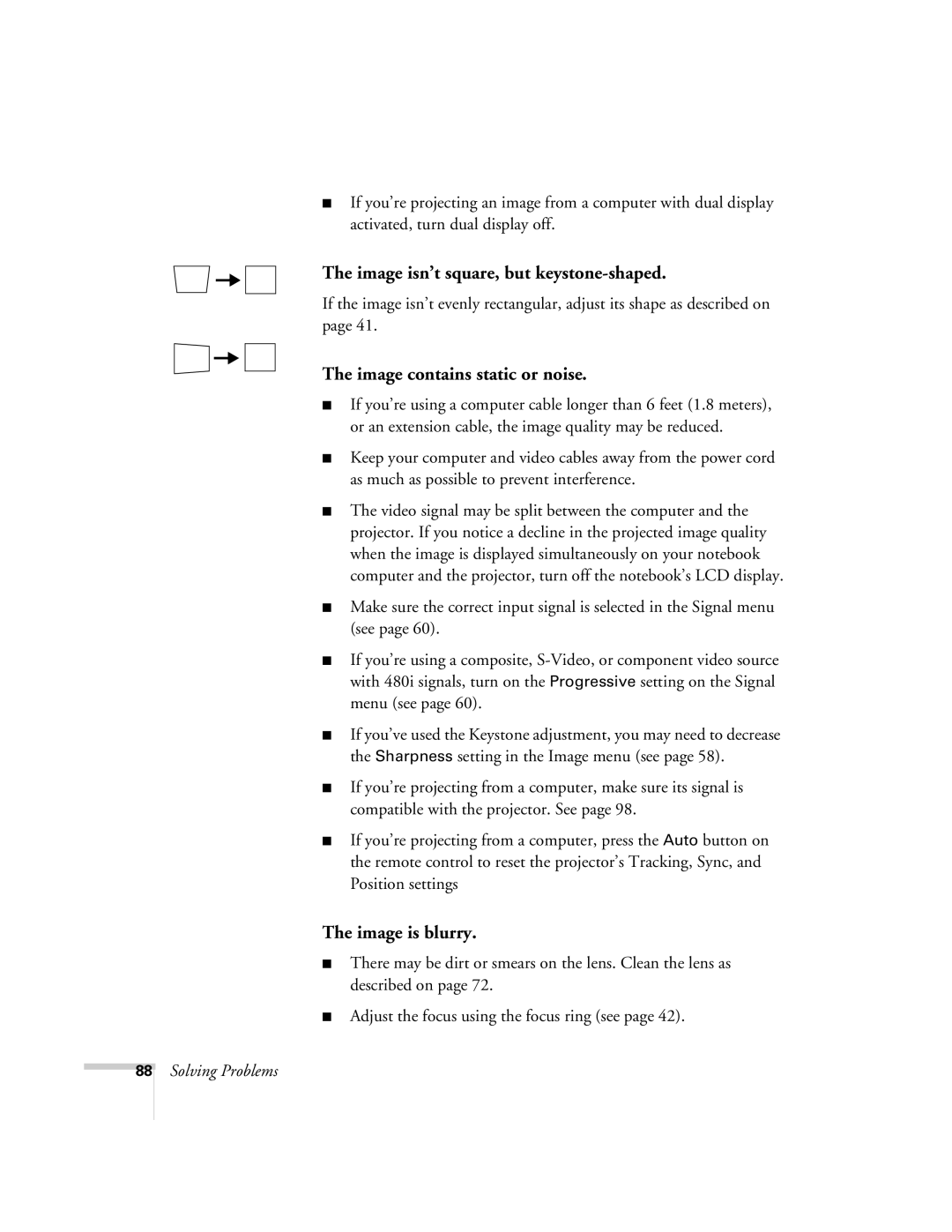
■If you’re projecting an image from a computer with dual display activated, turn dual display off.
The image isn’t square, but keystone-shaped.
If the image isn’t evenly rectangular, adjust its shape as described on page 41.
The image contains static or noise.
■If you’re using a computer cable longer than 6 feet (1.8 meters), or an extension cable, the image quality may be reduced.
■Keep your computer and video cables away from the power cord as much as possible to prevent interference.
■The video signal may be split between the computer and the projector. If you notice a decline in the projected image quality when the image is displayed simultaneously on your notebook computer and the projector, turn off the notebook’s LCD display.
■Make sure the correct input signal is selected in the Signal menu (see page 60).
■If you’re using a composite,
■If you’ve used the Keystone adjustment, you may need to decrease the Sharpness setting in the Image menu (see page 58).
■If you’re projecting from a computer, make sure its signal is compatible with the projector. See page 98.
■If you’re projecting from a computer, press the Auto button on the remote control to reset the projector’s Tracking, Sync, and Position settings
The image is blurry.
■There may be dirt or smears on the lens. Clean the lens as described on page 72.
■Adjust the focus using the focus ring (see page 42).
88
Solving Problems
